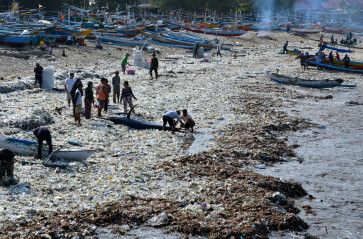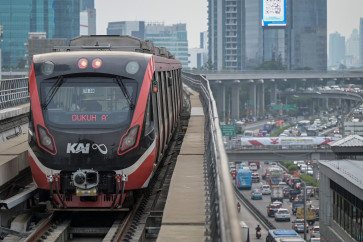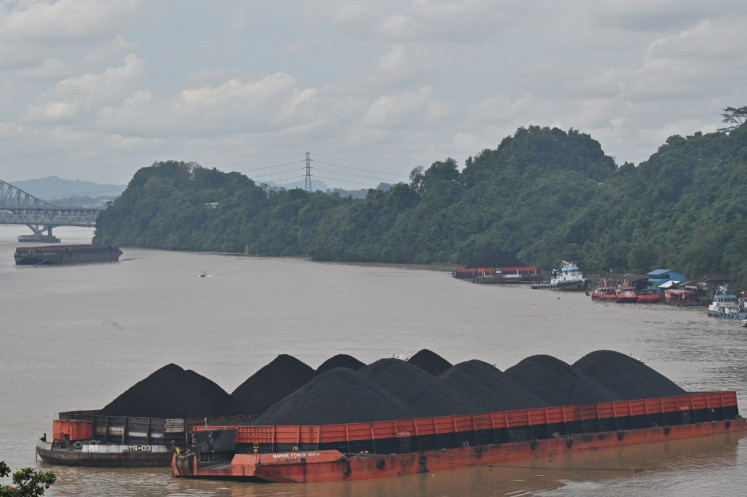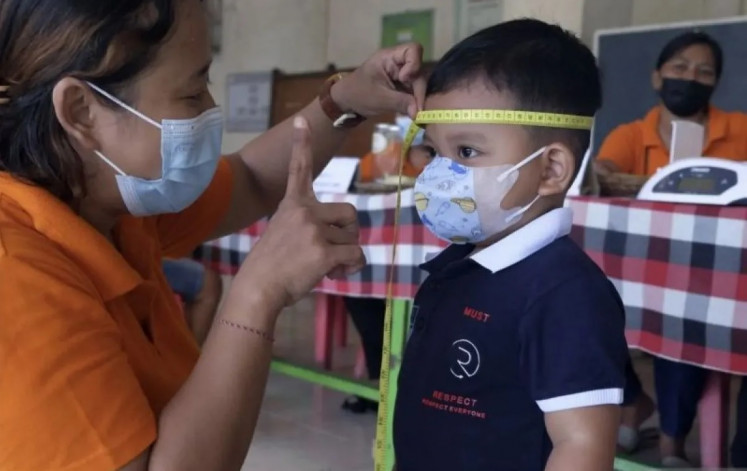RI must not shirk its global human rights duties: HRW
Human Rights Watch has scrutinized Indonesia's silence on human rights issues on the international stage in its latest annual report.
Change text size
Gift Premium Articles
to Anyone
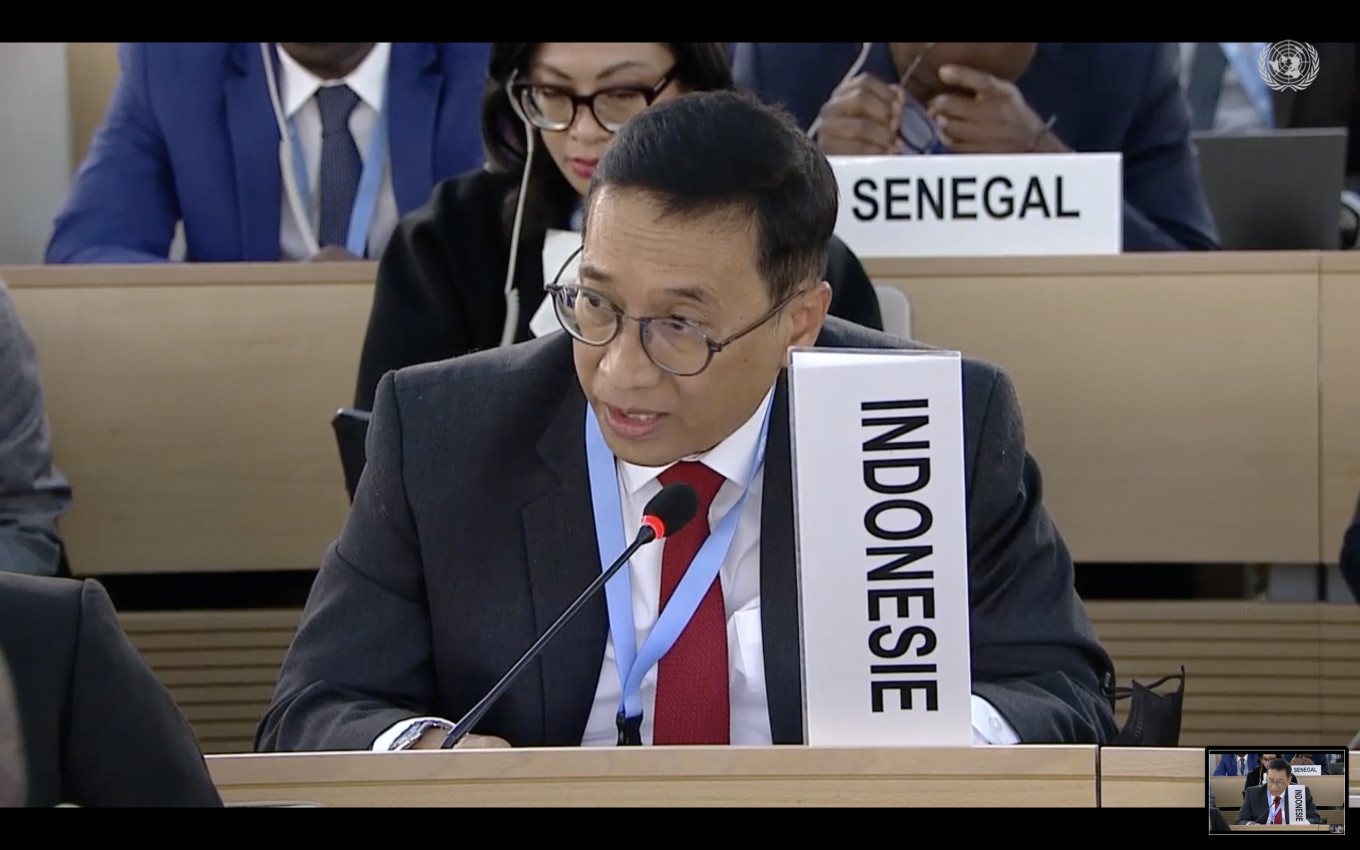
I
ndonesia should have a more active voice in global human rights discourse, despite its principle of political non-alignment, Human Rights Watch (HRW) researchers said on Thursday, citing the country’s silence on the persecution of Muslims in eastern China, among other omissions, as counterproductive to human rights.
And while some human rights issues may have been used as political cudgels, activists insisted that this did not give Indonesia an excuse to keep out of such discussions.
The statement was made shortly after the release of HRW’s annual report, which pointed to Jakarta’s deciding vote against holding a discussion at the United Nations Human Rights Council (UNHRC) on alleged abuses against the Muslim Uighur minority in China’s Xinjiang region.
“Indonesia’s vote against the motion, which failed 19 votes to 17, was crucial. Ukraine later announced its support for the motion, narrowing the final margin to one,” the report reads.
At the time, the Foreign Ministry suggested that Indonesia had voted against the discussion because it would have been used as a political weapon against Beijing.
China is Indonesia’s largest trading partner.
“One way to get around the politicization of these issues is to have a discussion at the UNHCR. [...] I really think that failing to use the avenues of accountability would not help at [tackling] the politicization,” said Elaine Pearson, HRW’s Asia director, at a press briefing for the report’s launch.
Andreas Harsono, a senior researcher at HRW, said the ministry had used Indonesia’s non-aligned stance to justify its vote at the UN during an audience with the rights group. But that, he told The Jakarta Post, was far from sufficient to defend Jakarta’s silence.
“Like it or not, it is better to talk about the issue rather than avoid it in the name of politics. [...] Xinjiang has been recently politicized by the United States, but that happens. Let us talk about it,” he said on Thursday. “Being a non-aligned country does not mean not doing anything.”
In line with its “free and active” diplomatic stance, Indonesia has sought to stay neutral amid intensifying geopolitical tensions.
In late December, Foreign Minister Retno LP Marsudi said in a speech that “human rights politicization, double standards, accusations and humiliations must be avoided”.
“Human rights functions as a means to protect dignity rather than to intensify geopolitical competition. Our collaboration must be based on good intentions and [a willingness] to learn from one another,” the minister said in her opening remarks for the Regional Conversation on Human Rights (RCHR) last year.
Price of principles
A desire to preserve China’s economic links with Indonesia was likely the primary motivation for Jakarta’s Human Rights Council decision, said Gadjah Mada University (UGM) international relations expert Dafri Agussalim.
“Everyone knows that Beijing would have protested if Jakarta agreed to hold the discussion. It would have affected the bilateral relationship in a significant manner,” he said. “And even considering our independent and active politics, it was not ideal that Indonesia stayed silent. Human rights is a universal concept.”
Besides the Xinjiang case, the report mentioned President Joko “Jokowi” Widodo’s trip last year to meet with his Russian and Ukrainian counterparts, Vladimir Putin and Volodymyr Zelensky, respectively, as an attempt to “balance” Indonesia’s position on the global stage.
It also cited ASEAN’s “failed” attempt to make any progress on its Myanmar peace initiative, which builds on the five-point consensus.
HRW did not elaborate on its stance on the matters when contacted by the Post.
“Jokowi’s meeting with Putin was something that Indonesia needed for last year’s G20 presidency and also to minimize possible crises. If HRW considers the meeting a political engagement, that would be a peculiar take,” said Lina Alexandra, head of the international relations department at the Jakarta-based Centre for Strategic and International Studies (CSIS).
“And with ASEAN, we are not naive enough to consider the bloc flawless, but Myanmar is a complicated issue. So far, ASEAN is still actively trying to resolve the crisis. It is a process,” she said.
Achsanul Habib, the Foreign Ministry’s human rights director, told the Post that the ministry would not comment on HRW’s report and that such criticisms were “part of what makes a democracy”.

